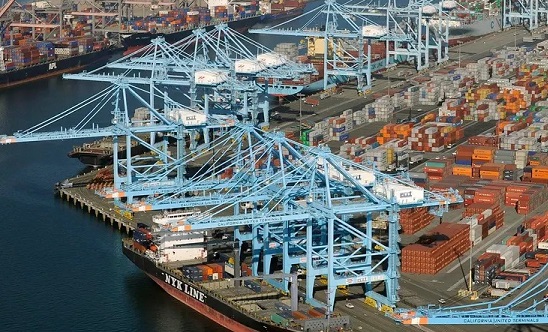Concerns Mount Among California Port Workers Over Job Security
California port workers are increasingly voicing concerns over job security as changing dynamics in global trade and supply chain disruptions create uncertainties in the industry. This article delves into the challenges faced by port workers, examines the factors contributing to their anxieties, and highlights the importance of collaborative efforts to address these issues and ensure a stable future for the workforce.
Shifts in Global Trade
The global trade landscape has experienced significant shifts, impacting California ports and the workers employed in this vital sector. Factors such as trade tensions, evolving consumer preferences, and the COVID-19 pandemic have disrupted supply chains, leading to fluctuations in shipping volumes and altering trade routes. These changes pose challenges to port workers, who rely on a stable and consistent flow of goods to sustain their employment.
Automation and Technological Advancements
The increasing adoption of automation and technological advancements in the shipping industry has also raised concerns among port workers. As companies seek to improve efficiency and reduce costs, there is a growing trend towards utilizing automated systems and artificial intelligence in port operations. While these innovations offer benefits in terms of productivity and speed, they also pose potential risks to employment opportunities for workers whose roles may be affected by these technological advancements.
Investment Banker | Chartered Accountant | IT Manager | Dentist | Software Architect
Orthodontist | Data Scientist | Psychiatrist | Physician | Surgeon | Cloud Engineer
Full Stack Developer | Sales Director | Corporate Lawyer | Blockchain Developer
Marketing Manager | Petroleum Engineer | Enterprise Architect | Cloud Solution Architect
Product Manager | UX Designer | Cybersecurity Manager
Job Insecurity and Retraining Needs
The uncertainties surrounding job security have left many California port workers anxious about their future. The potential for job displacement due to automation and changing trade patterns has created a pressing need for retraining and upskilling programs. It is crucial for stakeholders, including government agencies, port authorities, and labor unions, to collaborate and establish initiatives that equip workers with the necessary skills to adapt to evolving industry demands and secure employment in emerging roles.
Importance of Collaboration
Addressing the concerns of California port workers requires a collaborative approach among various stakeholders. Close cooperation between government agencies, port authorities, labor unions, and industry representatives is essential to develop comprehensive strategies that safeguard workers’ interests while ensuring the long-term competitiveness of California’s ports. These collaborations should focus on providing training programs, fostering innovation in the sector, and creating opportunities for workforce transition as the industry undergoes transformation.
Investment in Infrastructure and Technology
To mitigate job insecurities, it is vital to invest in infrastructure and technology that support the growth and resilience of California’s ports. Modernizing port facilities, optimizing logistics operations, and integrating sustainable practices can enhance the region’s competitiveness, attract investment, and create a conducive environment for job retention and creation. Furthermore, by aligning infrastructure investments with workforce development initiatives, policymakers can facilitate the transition to a more technology-driven and efficient industry.
Diversification and Adaptability
Encouraging diversification and adaptability within the port industry can help mitigate the impact of changing trade patterns and technological advancements. This entails exploring new trade opportunities, expanding service offerings, and supporting entrepreneurial initiatives that leverage the region’s strengths and expertise. By embracing innovation and flexibility, California ports can create new avenues for employment and ensure a resilient workforce that can navigate evolving industry trends.
Conclusion
The concerns expressed by California port workers over job security reflect the challenges faced by the industry due to changing trade dynamics and technological advancements. Collaborative efforts are crucial in addressing these concerns and securing a stable future for the workforce. By investing in infrastructure, promoting technological innovation, and prioritizing retraining and upskilling programs, stakeholders can help alleviate job insecurities and position California’s ports for long-term success. It is through proactive measures and collective actions that the industry can adapt, thrive, and continue to provide essential contributions to the state’s economy.







